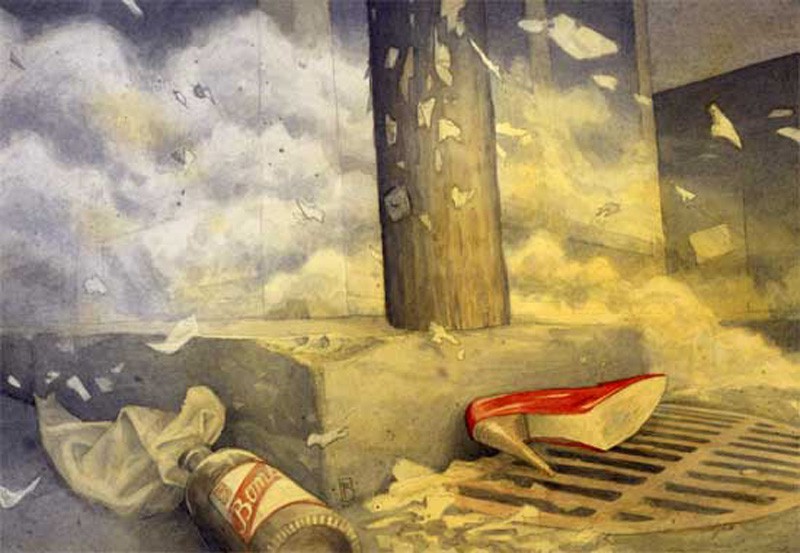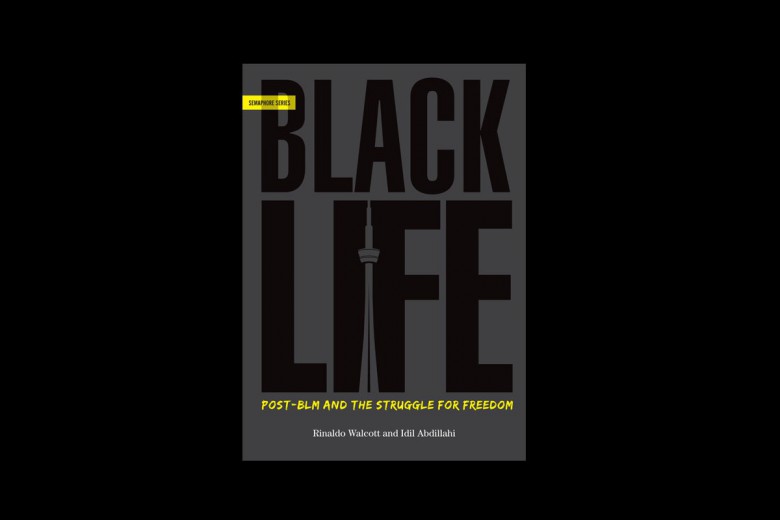
Send My Love and a Molotov Cocktail! Stories of Crime, Love and Rebellion
Edited by Gary Phillips and Andrea Gibbons
PM Press, 2011
PM Press was founded in 2007 by former members of the anarchist publisher AK Press to “create radical and stimulating fiction and nonfiction books.” Send My Love and a Molotov Cocktail!, a collection of short stories released last year, provides ample evidence that they are meeting their mandate. Edited by Gary Phillips and Andrea Gibbons, two community and labour organizers turned crime-fiction authors, the book features 18 stories of “crime, love and rebellion.” Science-fiction heavyweights Kim Stanley Robinson (The Red Mars Trilogy) and Cory Doctorow (Little Brother) are joined by bestselling mystery author Sara Paretsky (The V.I. Warshawski series) and many other lesser-known but no less talented contributors.
Rick Dakan is one such author. In “Berlin: Two Days in June,” Dakan introduces us to Martin, a junior sales agent working in Germany for a tourism promotion company based in the U.S. The distance from his employer gives him little freedom; his sales device is a smart phone that functions as an electronic tether. Martin’s world turns upside down when he downloads an app that gives him a glimpse of a radical moment in 1940s Berlin and his own personal connection to a history of struggle that has been erased from the cityscape.
Dakan’s contribution is one of four stories that deal with workers or production; a far greater number of tales centre on acts of rebellion by those who are only marginally connected to, or completely outside, the process of production. In Marxist terms, Send My Love puts the lumpen proletariat centre-stage in the struggle.
Marx defined the lumpen proletariat as the layer of the working class that exists outside of the wage-labour system, the people who turn to charity or criminal activity to survive. The lumpen “may, here and there, be swept into the movement by a proletarian revolution; its conditions of life, however, prepare it far more for the part of a bribed tool of reactionary intrigue.”
More recently, the Black Panther Party believed that the lumpen were in fact the revolutionary class, and recruited members from the ranks of unemployed and street-involved black people in urban America. “The outlaw and the lumpen will make the revolution,” said George Jackson. “The people, the workers, will adopt it.”
Gary Phillips’ protagonist is one such outlaw. “Masai’s Back in Town” opens with a blazing gunfight between the title character – a former ’60s black revolutionary – and a gang of white supremacists. The abrasive, adrenaline-pumping plot involves right-wing talk show hosts, aging FBI agents and a mad search for a big score: hidden COINTELPRO* slush funds stolen decades earlier. Phillips, an accomplished novelist and comic book writer, offers an entertaining, rebellious twist on the hard-boiled crime genre; the cops are the bad guys, the criminals are radicals, and sometimes crime does pay.
Phillips and Gibbons clearly side with the outlaws, but they have also included stories that keep to more traditional mystery-tale territory. “Poster Child” is Sara Paretsky’s decidedly feminist take on the police procedural sub-genre. A female officer is assigned to investigate the murder of an anti-choice Christian-right radical, but she’s hiding her own personal connection to the case.
Benjamin Whitmer’s “Cincinatti Lou” features the collection’s most compelling character, and also its most despicable: the racist, sexist and brutally violent Officer Kreiger. Whitmer chronicles the downward spiral of Derrick Kreiger in tight, wicked prose as the cop hunts a black radical through burning Cincinatti streets, set alight by rioters. While Kreiger finally fails, it isn’t clear that the radicals have won.
Indeed, many of the stories fall within the noir tradition that noted crime author Dennis Lehane defines as working-class tragedy. “In Shakespeare, tragic heroes fall from mountaintops,” he writes. “In noir, they fall from curbs.” Even when the characters successfully resist oppression, their victories are slight or fleeting.
The stories in Send My Love may riff on radical and revolutionary themes, but they are more entertaining than instructive; they don’t coalesce into a coherent politics. Entries like “A Good Start” by Barry Graham, which centres on the murder of a sexist office manager, seem to conflate revenge with revolutionary action, and suggest that catharsis, rather than justice, is what we should aim for. “I Love Paree” by Cory Doctorow and Michael Skeet plays with similar themes; during an anti-corporatist uprising in a near-future Paris, a young systems analyst and his cousin fall victim to revolutionary fervor gone off the rails. But unlike Graham, the authors seem to argue for moral and political consistency, even when caught in the whirlwind of radical upheaval.
Perhaps this diversity, when approached critically, is exactly how the fictional worlds of Send My Love can stimulate our work: To be motivated by the raging, loving heart of the rioter, but to guide our actions with the calm, calculating mind of the professional bank thief. To organize both workers and the lumpen, but constantly strive to be more strategic and impactful; to move beyond rebellion and build a movement of sufficient power to make revolutionary social change.
*COINTELPRO was a covert project conducted by the FBI throughout the 1950s, 60s and 70s to infiltrate, discredit, and destroy black liberation movements and left-wing political organizations.




